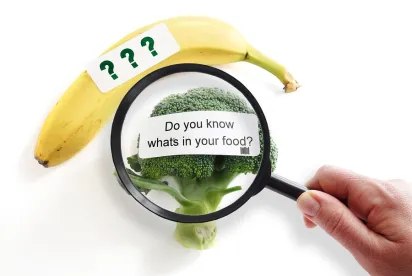Given the increased prevalence of plant biotechnology to develop innovative foods, FDA is reminding industry of its voluntary consultation program to ensure the safety of and public confidence in plant biotechnology-derived foods. FDA describes “plant biotechnology” as “certain methods scientists can use to introduce new traits or characteristics to a plant.”
FDA has assisted in 184 voluntary consultations through this program since its introduction in 1995. In encouraging industry to participate in the program, FDA provided the recent example of Calyxt, Inc., which consulted with FDA on the safety and nutritional profile of its FAD2KO soybean that is gene-edited to be high in oleic acid.
Concurrently with its voluntary consultation program statement, FDA issued revised Guidance for Industry on the Voluntary Labeling Indicating Whether Foods Have or Have Not Been Derived from Genetically Engineered Plants. The guidance states that, given the issuance in December 2018 of USDA’s National Bioengineered Food Disclosure Standard (NBFDS) implementing regulations, FDA is “reviewing this draft guidance to consider what additional or new recommendations may be needed for the kinds of products or statements, including claims of non-GE [genetically engineered] content, that are not covered by the NBFDS.” In the meantime, the guidance continues to describe how to make voluntary claims on biotechnology that use proper terminology so as to be truthful and not misleading.



 />i
/>i

